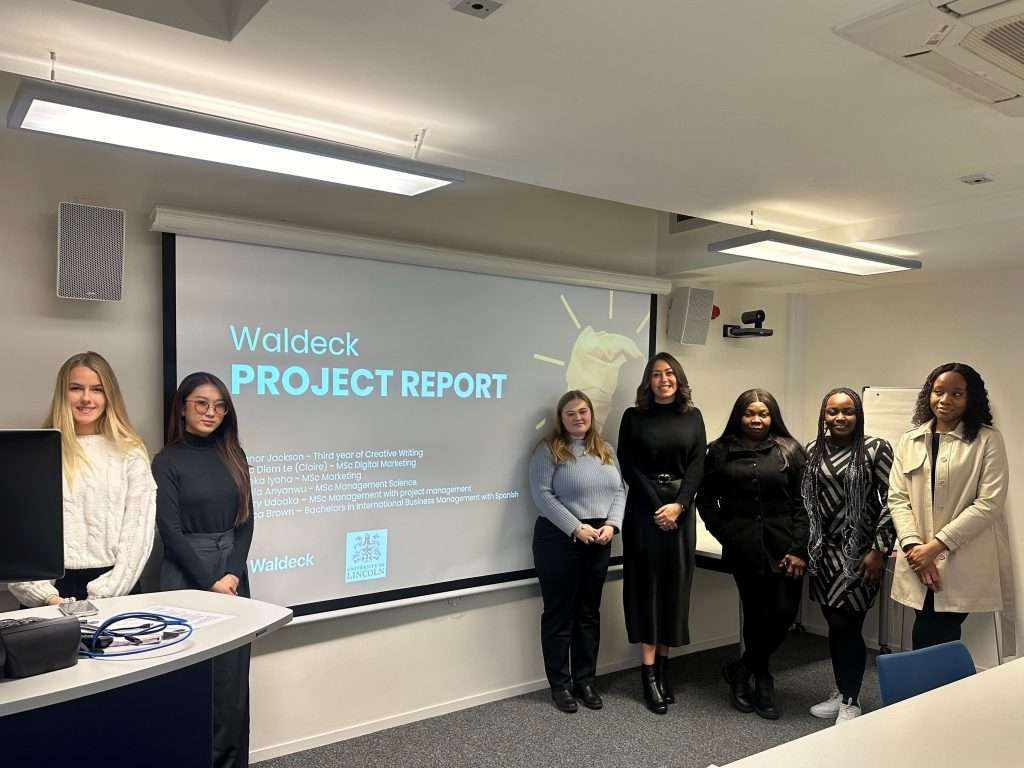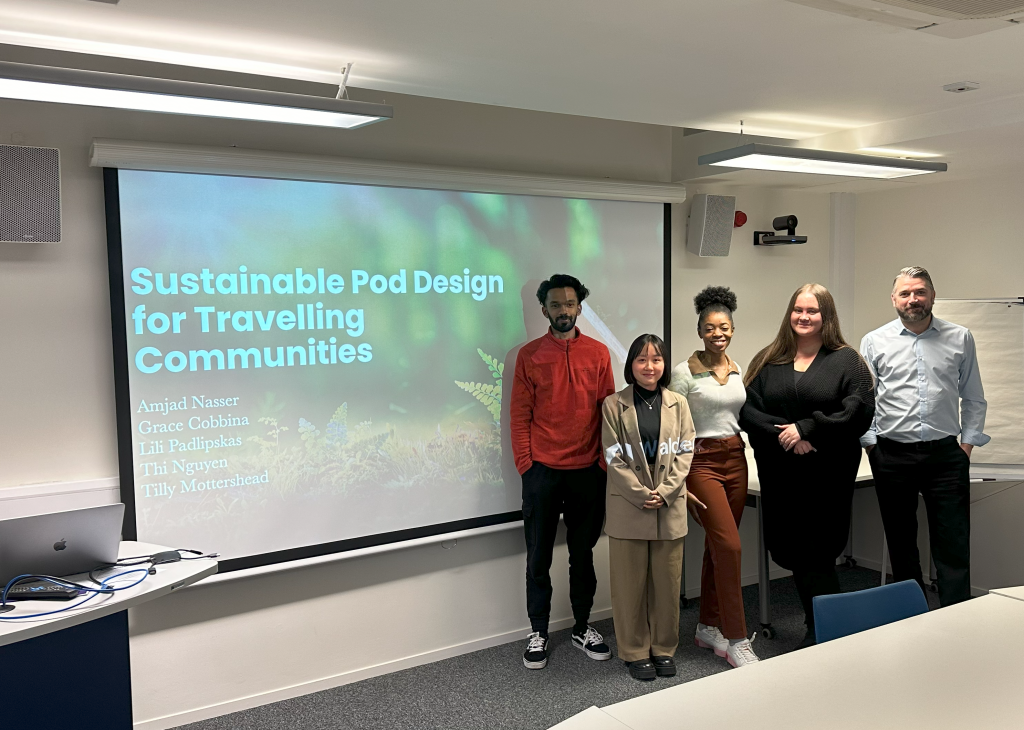The Lincoln Award is an employability framework designed to support University of Lincoln students in preparing for their future careers, supports students to develop and learn how to demonstrate their employability skills.
The Employer Projects in particular offer students the opportunity to work on a real project brief set by an employer. Working in a group of 6-8 students from a variety of courses they are able to gain valuable work experience and evidence to future employers their ability to work in a ‘real-world’ multi-disciplinary environment.
Waldeck provided two Employer Briefs to two different student groups.
- Group 1 – Focussing on the company’s Marketing Strategy for Lincolnshire
- Group 2 – Focussing on the Design of Sustainable Pods for the Traveller Community
Group 1 – Focussing on the company’s Marketing Strategy for Lincolnshire

Image: Hannah Cook with the Marketing Project Brief Student Group
Hannah Cook commented:
“Having graduated myself from an MSc in Marketing at the University in 2015, it’s been great to spend some time back on campus and be able to support the next generation of marketers as they find their feed in industry!
“The students on my Project Brief came from a range of academic backgrounds (Digital Marketing, International Business, Project Management & Creative Writing) and did a fantastic job of presenting their research and findings for the Marketing Strategy project I set them back in October.
“I was genuinely so impressed with their enthusiasm, thorough research, insightful perspectives and the Marketing Strategy they created as a result. Well done to the project group and a big thank you to the University of Lincoln Careers & Employability team for inviting Waldeck to be involved in the programme!
“I look forward to returning to campus in February to brief the next cohort of students on another Marketing project.”
Digital Marketing student, Ngoc Diem Le shared of her experience:
“I’ve just wrapped up an incredible journey with my University Employer Project, working on a case study from Waldeck for a 6-month Marketing Strategy. My main contributions were in competitor research, marketing action plan, website optimisation, report generation, and design. It’s been a rewarding experience contributing to a project with real-world impact.
“A huge shoutout to my amazing teammates, who brought their A-game, with fantastic ideas and an unbeatable attitude throughout. Special thanks to Emma Parker at the University who co-ordinated the project, for the unwavering support and to Hannah Cook for bringing this wonderful project to us. It has been such an honour to connect and learn from a senior in the industry.”
“I’m looking forward to the next chapter and more opportunities to turn classroom learnings into real-world successes!”
Group 2 – Focussing on the Design of Sustainable Pods for the Traveller Community

Image: Stuart Denniss with the Project Brief Student Group
Stuart Denniss commented:
“The students showed a real engagement with the Architectural Project Brief, embracing the opportunity to come up with some really inventive ideas for their final design.
“The group demonstrated a clear understanding of the brief and combined supplied information with their own research to undertake and present a great piece of work.
“I was very impressed with their attitude towards the project and I can’t wait to take their work into the next project group, for them to further develop in February.”
Project Management student, Grace Cobbina, shared of her experience:
“The key objectives for our team were to investigate into the lifestyle of the end-user, select sustainable materials and design a pod to suit their lifestyle.
“The team highlighted some design principles of sustainable buildings and utilised passive and active design systems to ensure the thermal comfort of the end-user. We also looked into how to use the “thermal flywheel effect” principle in the concrete slab and trombe wall to improve the energy performance of the pod.
“Following the presenrtatons, discussions were sparked by the thoughtful questions and constructive criticisms from Stuart and Emma, encouraging us to further explain our choices for the final design.
“Thank you to Waldeck and University of Lincoln Careers & Employability team for giving us the opportunity to transfer academic knowledge into real life projects.”